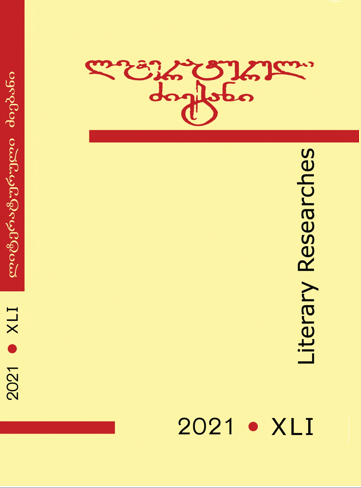Published 2021-12-20
Keywords
- Modernism,
- Symbolism,
- Expressionism,
- Pessimism,
- A de-heroized man
How to Cite
Abstract
The scientific discoveries and philosophical concepts that took place in the second half of XIX century essentially determined the formation of a new modernist aesthetic. A man, who was doubtful of the existence of God and left without a foothold in a vast world, was overcome by universal fear and skepticism. Consequently, modernist art has offered us a new model of world perception. The human consciousness or subconsciousness, momentary feelings and impressions, deeper feelings, hidden spiritual layers, invisible sides of the visible, etc. were equally important and valuable to it. Georgian culture of this period, and not only of this period, tries to follow the current literary processes in Europe, which more or less are intensively reflected on the development of Georgian literature of this period. A new generation of writers entered the arena in the Georgian literature of the 90s of XIX century, who introduced a number of noteworthy tendencies in the national literature. Shio Aragvispireli is among them and is considered to be one of the founders of the Georgian psychological novella.
It is true that in Georgian literature the first modernist manifesto and, consequently, the literary group united around this aesthetics appeared in the second half of the 1910s (1916), but new tendencies are clearly visible in the works of Georgian writers from the 1890s.
In this respect Shio Aragvispireli is one of the most notable creators, whose prose, along with other features, clearly reveals the artistic characteristics of modernism. In this regard, it is noteworthy that there is an intensified sense of ephemerality, a de-heroized person facing everyday problems and thinking about his own existence, pessimism, which is equally conditioned by social factors and philosophical views. The stylistic and genre peculiarities, the specific characteristics of miniature prose are noteworthy as well. Of course, much more significant novelties in this regard date back to the 1920s, but writers at the turn of XIX-XX centuries also took part in preparing the ground for including the Georgian literature within the ‘European radius’. Shio Aragvispireli occupies an important place among them.

